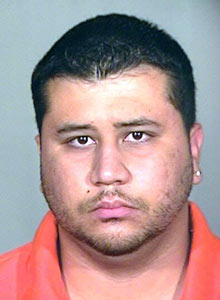The historic election of Barack Obama as President of the United States in 2008 was a fulfillment of Martin Luther King Jr.’s dream.
And Obama’s overwhelming re-election in 2012 proved that his first election was not an aberration. Winning two former slave states, Virginia and Florida, with people of all colors waiting in long lines to re-elect him, was hailed as a sign that racism was coming to an end in America.
For many blacks, a black man in charge of the free world was better than reparations, affirmative action and preferential treatment. For them, Obama’s presence in the White House seemed better than an economic boost: it was a celestial one. People endowed him with magical powers. He was going to deliver the poor, down-trodden people known as the black underclass out of poverty. Men would be fathers, crime would dissipate and in rough neighborhoods, trouble and need would be replaced by order and prosperity.
And for some white people, this was also a great moment of shared relief. They saw their racial debt was paid and they no longer felt guilty for past wrongdoings. It was the passing of the torch to the black race.
However, with power comes responsibility.
Because there were minorities in power at federal, state and local levels, blacks could be now called racists instead of victims.
No longer could someone say he or she was being held back by “the man,” because a black man was in charge. There could be no more excuses or finger pointing.
Was this a new age, a post-racial society?
Was this the end of institutional racism? Many would hail such a development as a tremendous breakthrough. Yet there were those who saw it as a threat.
What would happen to the institutions that made money on racial grievances? They were destined to become obsolete. If there were no race issues, there would be no need for people to feel guilty about past grievances and they would not be compelled to open their wallets and write checks. It would also mean the end for spokesmen like Al Sharpton, Jesse Jackson, labor bosses and black officials, who inject race to advance their agendas or win elections.
While most of America is moving past race, the “aggrieved industry” found itself in a crisis. Without racial controversies and hysteria, it faced irrelevancy.
Obama won with not just black voters, but from a cross section of America which gave him two majorities, and a mandate to lead all of America, not just black America.
However, this news did not sit well with liberal radicals and activists. The first to take shots at Obama were Tavis Smiley and Cornel West. They bet heavily on Hillary Clinton, believing they would receive access if she won. However they, like Jesse Jackson, were very critical and President Obama made them irrelevant by shunning their requests. Both felt betrayed. They went on a poverty tour dedicated to criticizing Obama for not have an Afrocentric agenda.
By 2010, the frustration of far-left liberals, race frauds and the Congressional Black Caucus grew. The Black Caucus toured the country where Charles Rangel and Maxine Waters begged their black constituents to speak out against the president.
But the post-racial society was not unfolding well for blacktivists. Then in 2012 , controversy stirred when George Zimmerman, a Peruvian-American neighborhood watchman shot Trayvon Martin, a black teenager carrying a bottle of iced tea and a bag of Skittles. Facts did not matter. Although Zimmerman was born in Peru, he looked white, and although an eyewitness saw a man beating Zimmerman, he was labeled a racist. Blacktivists knew that capturing this story would bring race to the forefront once again. White people who no longer felt guilty about racism would conjure guilty feelings about the poor and start writing checks again.
When Obama injected himself into the discussion, the liberal media hailed him as Abraham Lincoln and the race industry was back in full swing. They took a tragedy and used it to raise their visibility. The news channels also capitalized on the death. They gave round-the-clock coverage to the Trayvon Martin case.
After spending years in the wilderness, Al Sharpton once again became the voice of Black America and got his own talk show.
The conclusion is this: blacks are galvanized by the Trayvon murder. But who has benefited more from his death? The poor or the race-hustling industry?








